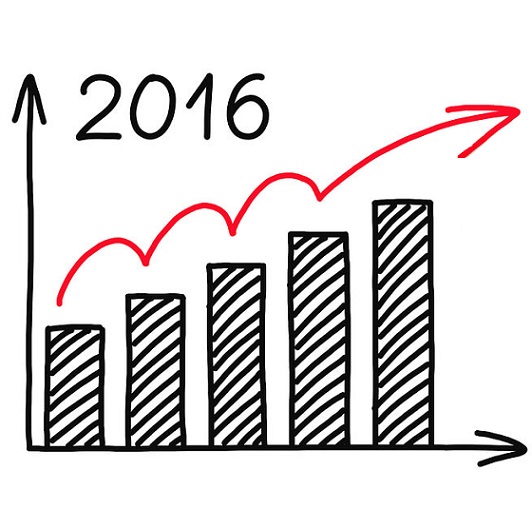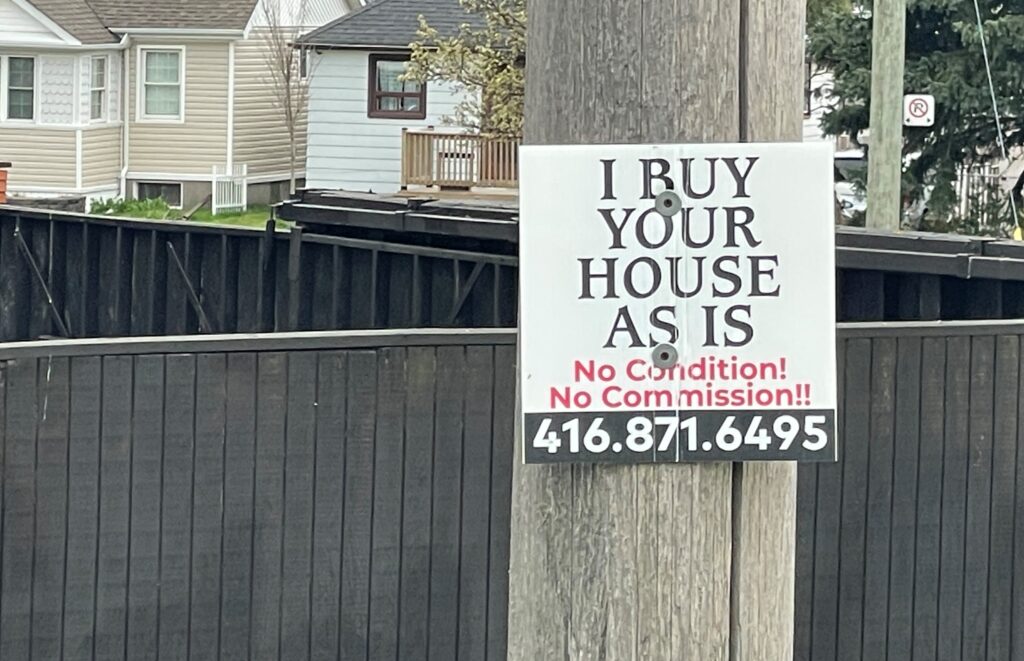Folks, I’ve combed through the TRB archives, and basically grouped every single blog by category, and by topic.
Any “Top Five” list is going to be subjective in nature, but there are some topics that we just kept discussing over and over, and I kept writing about.
Feel free to tell me if you think there was a bigger story out there, but the way I see it, these were the top five real estate stories of 2016…

Ten topics made my short list.
Five made the cut.
And I changed the order over, and over, and over.
Feel free to add, subtract, or re-order the list. If I’ve missed something glaring, I want to hear about it…
–
5) New Mortgage Regulations
Gawd.
This is such a boring topic that I actually thought about skipping it, and making #5 the Urbancorp saga.
But the Urbancorp saga has been ongoing for years, and their bankruptcy was just an eventuality in my mind.
It’s a big story, but I just don’t think it affects enough people, and it really doesn’t extend outside Toronto.
Instead, we get to talk about guys in suits making decisions…
I’ve said this many times before, but it needs mentioning again: the CMHC, via the Canadian government, Bank of Canada, Finance Minister, et al, have been trying for years to cool the Canadian real estate market, more specifically Toronto and Vancouver.
That’s part of what makes this story so interesting, in that they keep failing, but they keep trying more and more ideas.
I wrote a blog post back in March, after the CMHC raised the minimum down payment from 5% to 10% on the portion of homes between $500,000 – $999,000:
“Will The Toronto Market Ever Cool?” – 3/11/2016
We know that sooner or later, the market will cool. In fact, it might go down! (gasp!)
But my blog, and my choice of words, was in response to this idea that CMHC has been trying to “cool” the market for years, without success.
In the blog, I outlined their major policy changes over the last few years:
1) The maximum amortization was changed from 40 years, to 30 years, to 25 years.
2) The minimum down payment required was upped from 0% (or in some cases a negative percentage when we had 107% financing) to 5%.
3) The minimum down payment required over $1,000,000 was increased to 20%.
4) The minimum down payment for second properties was increased from 5% to 20%.
5) CMHC insurance premiums were increased.
6) Just recently, the minimum down payment for the amount of home price between $500,000 and $999,999 was increased from 5% to 10%.
Actually, before I wrote that blog, I wrote:
“Will The New Mortgage Rules Really Have An Affect On The Market?” – 2/11/2016
That’s worth a read too, just because it’s so much fun in hindsight!
Throughout 2016, this was a story that would just not go away.
As the market continued to rise, we heard more and more rumblings about “What CMHC will do next.”
I offered up a suggestion midway through the year:
“Should The Federal Government Act On Uninsured Mortgages?” – 7/11/2016
And in the end, we saw another “major” policy change in October, when the government legislated that all borrowers must now qualify at a bank’s benchmark rate, rather than their actual borrowing rate.
It was major – I won’t lie.
But still blown out of proportion, as it always is.
I had my mortgage broker clear it all up with one blog post:
“New Mortgage Rules: Myths And Truths” – 10/31/2016
Do you want to bet on whether or not the CMHC remains quiet in 2016?
Say what you want about them, but it must be really, really hard to determine policy for a whole country, when you’re really just trying to cool two markets…
–
4) Foreign Ownership
You might argue that this was a bigger topic than #3, #2, and maybe even #1.
And I might not disagree.
For years and years, throughout this real estate boom, frustrated buyers have looked for a reason for continually rising home prices (other than simple supply and demand, of course, because that’s boring…), and this was the year they found it: the foreign buyer.
Don’t blame your friend, Bob, who sits next to you at work, and who bought his $975,000 house with 5% down before CMHC changed the rules in February.
Don’t blame your cousin, who owns seven “investment condos.”
Don’t blame the banks, or the Finance Minister, for low interest rates – because you like low interest rates!
Don’t blame anybody who lives and breathes on Canadian soil.
Blame that person who looks different from us, talks different from us, and who is CLEARLY causing the market to artificially inflate.
Ah yes, the foreign buyer!
For years, we’ve argued over what percentage of Canada’s real estate, be it Vancouver, Toronto, or even more specific, such as downtown Toronto condos, is owned by foreign investors.
And while we’ve seen some predictions in the past – CMHC saying 2.3% of Toronto condos were owned by foreign investors back in December of 2014, and then saying this past year that 10% of “newer stock” is owned by foreign investors, the public has never been willing to accept these figures.
While the public has no numbers, and no proof to suggest that actual figures are higher than what CMHC has provided, they’re willing to give that age-old, undeniable, unbeatable logic: “it just has to be.”
The sentiment out there that foreign buyers are driving up the price of Canadian real estate clearly peaked in 2016, and it brought about a ton of change in British Columbia (as I will detail much further down below).
I started 2016 by writing about foreign investment, right off the hop:
“Monday Morning Quarterback: Capital Controls & Foreign Investment” – 1/18/2016
In my blog, I mentioned a well-written article from CBC.ca, about how there are fewer restrictions on the free flow of capital coming out of China. That’s more money out in the world, looking for a place to land, and of course, much of it was, and still is, going to find its way to Canada.
But I also started the conversation about foreign investment, and included a few comments from random internet-dwellers (they’re the best, aren’t they?) that clearly demonstrate how angry the public is about foreign ownership of Canadian real estate!
Have a read if you’ve got time – some of the comments are hilarious.
I brought up the topic again a few months later with an appropriately-titled blog:
“Another Conversation About Regulating Of Foreign Ownership” – 5/18/2016
And then just to depress those who are enough to let it affect them, I wrote this last week:
“Why We Can Never Stop Foreign Investment In Canadian Real Estate” – 12/9/2016
Now let me make a prediction.
If the government were to restrict foreign ownership of real estate, as many Canadians want, if we ever see a massive downturn in the real estate market, those very same Canadians will be climbing to the highest mountain, and shouting, “Why the hell won’t you allow somebody overseas to buy my home? All these ‘rules’ are pushing down the price, and my family is suffering!”
Oh, just you wait…
–
3) The Business Of Real Estate And The Real Estate Industry
I don’t take it personally when people critique the real estate industry.
In fact, I welcome it.
I think if you’re passionate and confident about what you do, you’re open to making that industry better.
Since I started this blog in 2007, I have ruffled feathers, opened cans of worms, and put targets on my back, by not only discussing practices that many agents wish wouldn’t be brought to the public’s attention, but providing my opinion on them – something most agents never do. And often, exposing practices.
This past year, “multiple offers” has been the hottest topic in the business of real estate; even hotter than commissions, which just goes to show you how much people hate dealing with multiple offers!
But multiple offers are a function of the market. They’re not going anywhere.
“Offer dates” will still be the norm in this market, for houses and for many condos, and frustrated buyers have to look at this logically, rationally, and above all – calmly, and realize that this isn’t some pre-conceived evil, but rather a function of supply and demand. And if they were on the other side of the equation, as a seller, they would do the exact same thing.
I wrote a lot of blogs this year on the topic of multiple offers. It wasn’t planned, but I write about hot topics, and it just seemed to be a topic we kept coming back to.
I covered everything to do with multiple offers, and then some!
Check out these links:
“How To Address Multiple ‘Rounds’ Of Bidding” – 2/10/2016.
“What Happens When The Listing Agent Has His Own Offer?” – 2/12/2016.
“The Waiting Game: Behind The Scenes Of An Offer Presentation” – 3/18/2016
“Multiple Ways To Deal With Multiple Offers” – 5/9/2016
“A ‘Fair’ Way To Deal With Multiple Offers” – 6/13/2016
“What Are The Rules Regarding Disclosure Of Offers?” – 8/29/2016
But in the middle of all that, I came up with an idea.
It’s a simple idea, and one you might think we should have already implemented, but those “in charge” of organized real estate are made up of half forward-thinkers, and half status-quo’ers.
My idea?
An offer registry system.
I know, I know – you’re asking yourself, “Doesn’t this already exist?”
No, it doesn’t.
The “system” we have to track registered offers is simply each brokerage’s front desk. And what happens with a discount brokerage, mom-and-pop operation, or even a traditional brokerage who is just incredibly inept? Well, you might confuse “2” with “5.” Easy mistake, right?
Well I wrote a blog post that I believe you simply can’t argue with:
“My Solution To TREB’s Problem: An Offer Registry System” – 8/2/2016
Yeah, TREB will never do it. It’s too complicated, and forward-thinking.
Another topic we covered this year was “exclusive listings,” and all those “Coming Soon To MLS” signs you see, which are really just another form of an exclusive listing.
I really think there’s zero advantage for the seller, and I said as much in an April blog post:
“Exclusive Listings: Yay or Nay?” – 4/18/2016
And then in November came this big hullaballoo from the CBC, with this “investigation” that was supposed to blow the lid off organized real estate.
I knew it was coming, and I wanted people to watch it, so I posted this:
“CBC’s Marketplace: Friday Night At 8:00pm” – 11/4/2016
The show was a “hidden-camera” style look at listing agents who were caught on camera suggesting they would “help” the would-be buyer’s offer, in competition against other offers,” to get them the property.
So here’s something I’ve never admitted: I talked to the producer of this piece back in February of this year.
I didn’t want to get involved with this when it came out in November, but I’ll admit it now. She and I talked for almost 90 minutes on February afternoon when I clearly had nothing better to do. Everything I told her was off the record, but I told it to her straight. And personally, I had no issue with the CBC piece in theory, but what they produced was so overly-dramatic, with the host and her holier-than-thou, fake-shock-and-awe, that it came off more like tabloid gossip than news.
And it blew over so quickly! The story was gone in a week.
But it goes to show you that the real estate industry, and its inner workings, is of major interest to the general public, and for good reason. Ours is like every other industry out there – we have good seeds and bad seeds; your industry is no different. But everybody lives somewhere, be it a house, a condo, a rental, or a van down by the river (we don’t make commission on that, so it’s the one thing we don’t sell), and thus everybody feels affected by real estate. People might not care about the ins and outs of other industries, if it doesn’t affect them. But when it comes to real estate, everybody is watching.
Don’t worry though – we have failed politician Tim Hudak at the helm here in Ontario now, so relax, everything is going to be fine!
–
2) Kathy Tomlinson & Vancouver Real Estate
Kathy Tomlinson changed the Canadian real estate market forever.
I don’t know if she knows it.
And I would certainly be surprised if she had any idea what was going to transpire before she wrote her first article in February of 2016.
But as we look back on the year that was, I don’t think there’s chance that any of what happened in Vancouver, would have happened without Kathy Tomlinson.
We think “Pulitzer” when we think about awarding literary works, but that, of course, is American.
If the Governor General’s Award For Literary Merit is the most prestigious award in Canada, then skip the vote and the hoopla – just give it to Kathy Tomlinson now.
This is not hyperbole, folks.
This woman changed real estate. She changed politics.
It all started on February 6th, 2016 when she published this: “The Real Estate Technique Fuelling Vancouver’s Housing Market”
It was, without a doubt, the best piece of investigative journalism on real estate that I have ever seen.
She exposed the corruption among a small, underground network of agents, who were conspiring to re-sell Vancouver properties to overseas buyers, many of them, allegedly, conspiring to sell the properties for less than fair market value in the first place.
This was the talk of the real estate community for weeks, if not months.
And it was the first time that we put a face to the “evil, foreign buyer.”
The foreign buyer, now, was identifiable. He or she was Asian, lived in mainland China, and had conspirators living in Vancouver.
This stirred debate among Canadians as to how to “deal” with the “problem” of foreign ownership.
And the government jumped into action.
“B.C. To Allow Vancouver To Introduce Vacancy Tax On Empty Homes,” read one headline in the Globe back on July 11th.
This was a bombshell, although as we know, nothing compared to what was to come.
It was the first time that the government really addressed the “speculator” in the marketplace, but they didn’t go full-bore and talk about “foreigners.”
No, not yet.
But only two weeks later, we heard that the “vacancy tax” was just an idea; the real tax would be a massive 15% foreign buyer’s tax!
From the Globe & Mail on July 25th: “B.C. To Target Foreign Real Estate Buyers With New Tax.”
We went from a vacancy tax, to a 15% tax, in the space of two weeks. It was as though the government were just flying by the seat of their pants!
But when this 15% tax was finally introduced, I suggested, and still believe, we can trace it all back to Kathy Tomlinson’s story. Her piece on “shadow flipping” opened a conversation about the role of, and more importantly the impact of foreign buyers in the Vancouver market place, and without her story, we wouldn’t be where we are.
But, Ms. Tomlinson didn’t stop after one success.
In September, Ms. Tomlinson put together another investigative piece called, “Out Of The Shadows,” where she revealed how loopholes and lax oversight are making it easy for a network of local and foreign speculators to “play the system.”
The government eventually responded, and we read: “B.C. Urges Federal Government Crackdown On Real Estate Tax Cheats.”
Once again, Ms. Tomlinson exposed a corrupt practice, and the government jumped into action.
Cause. Effect.
Wow.
In November, Ms. Tomlinson was back at it again when she wrote “Investigation On B.C.’s Farmland, Mega-Mansions, And Speculators Reap The Rewards Of Lucrative Tax Breaks.”
It seems that, for several years now, foreign buyers have been purchasing farmland to pay 10-cents on the dollar in taxes, and none of them are using it for farming.
But this time, it took mere days for the government to react!
On November 21st, we read: “B.C. Minister Says Province Will Act ‘Quickly’ To Close Tax Loopholes On Farmland.”
What, oh what, will she have in store for us in 2017?
It’s amazing. Absolutely amazing.
I don’t know if I’ve ever seen more impactful journalism than what Kathy Tomlinson gave us this past year.
To see her journalism result in policy changes throughout British Columbia is
–
1) Prices
Boring, right?
But how can this not be the #1 real estate story of 2016?
It’s the same story, over and over and over.
And when will it end?
2007. Apparently, if you read one prediction.
2009. So says another “expert.”
2014. Says somebody who missed out on another 30% in gains. Oops!
Every single expert out there; every predictor, prognosticator, economist, professor, financial advisor – every single one of them has been wrong, every year, for a decade.
And right now, you just know a legion of headline-makers are penning their “prediction” for 2017, which will somehow, in some way, despite all logic, consist of some sort of decline in the average home price in Toronto.
The average price of a home in Toronto was up 22.7% in November, over the same month in 2015.
And that’s not an outlier.
Because October was up 21.1%, and September was up 20.4%.
That’s real, folks.
Numbers like that make you shake your head, suggest that maybe “it was a great year for luxury homes, and it’s skewing the data,” or otherwise trying to rationalize a number so big, it can’t be real.
But with over 100,000 sales in Toronto each year, it can’t be about “skewed data.” At some point even the bears have to admit this happened.
I offered reasons for the increase in prices.
You’ll recall from Friday’s blog post, although I’ll put the links again in case you did something crazy, like not read them:
“Toronto’s Real Estate Problem: Simple Supply & Demand” – 8/15/2016
“Reduced Supply & Increased Demand: What Are The Reasons?” – 8/17/2016
No, seriously, read them. And the comments. There will be a quiz later…
Much has been made about affordability this year, or lack thereof.
There were all kinds of stories that came out of it, not that I want to revisit them all.
Too many are those sappy, sad-sack front-cover stories that feature some young couple with a small rain-cloud over their heads, that keeps following them around.
And then add in the politics! Oh boy!
The Ontario Liberals are giving $2,000 in land transfer tax rebates back to first-time buyers.
The British Columbia Liberals are giving first-time home-buyers subsidized loans.
The market is just so hard! Prices keep rising!
I blame foreign buyers, don’t you? Wait…
Personally, I don’t think we’ll ever run out of “have-nots” to feature on the front cover of Macleans or the Toronto Star’s weekend edition, so I just don’t see it as a story. But the media love names and faces, don’t they?
I find these stories, and the politics that result from public discontent, blur the true problems and root causes, most of which our elected officials either choose to ignore, or don’t know how to address.
So what’s in store for 2017, when prices here in Toronto rise again?
If you were looking for me to answer my own question, I’m not going to.
We’ll just take it as it comes next year, and discuss it on the blog all the while…
–
So that’s it for my Top Five, folks!
Sorry if I went on a bit log. 3,200 words. Yowzas!
But some things just can’t be said in brief.
And when it comes to real estate, nothing is explained easily.
Let me know if I missed anything that you felt was a huge story in 2016.
And if it’s not too early, why not discuss predictions for 2017 in the comments section below?































Ed
at 9:02 am
Hey David,
if you’re bored and have nothing to do one day could you please update the monthly numbers as per ““Toronto’s Real Estate Problem: Simple Supply & Demand” – 8/15/2016” post and run them through to the end of the year.
Thanks
Ralph Cramdown
at 12:12 pm
I think the story of the year is MANIA. Some of us thought it was pretty crazy last year, but it got a lot crazier this year. The Globe and Mail wouldn’t have given Tomlinson all those resources unless it knew that her stories were going to generate a HUGE amount of online engagement. Most of your stories above are all about mania. What have we become that CMHC and OSFI policy changes are front page news and are widely debated for weeks (months for the mortgage brokers)? Real estate prices are the #1 political issue in BC, and would probably be #1 in Ontario if not for hydro prices.
And I suppose there’s no reason it couldn’t get even more manic next year.
Appraiser
at 2:09 pm
@ Ralph Cramdown:
Is it your contention that real estate sales and prices in Toronto are not based on market forces but rather that it has succumbed to to an ill-defined form of collective “mania” resulting in “craziness?” I’m surprised you didn’t use the other ubiquitous bear slogan invoking the “herd-mentality” meme.
Pretty shallow stuff Ralph.
Ralph Cramdown
at 8:02 am
I guess we need to talk about “market forces.”
Usually, when economists talk about markets, they envision people with money in their pockets trading with people who have goods. Would I rather have the $3, or the ice cream cone?
I think we can agree that first time real estate buyers were pretty stretched in Toronto a year ago, and even two years ago — that is, they weren’t paying 20% below what they could afford. Statscan keeps track of household income, and moderately higher income plus moderately lower interest rates don’t support the jump in prices we’ve seen.
My conclusion is that higher prices must be a combination of foreign cash and local cash extracted from home equity — i.e. parents taking out HELOCs to fund their kids’ down payments. You’re free to differ, but, the way I see it, you’d have to argue that either first-time buyers’ incomes have jumped significantly more than the average household, or they were paying a lot less than they could afford a few years ago.
What’s your view?
Kramer
at 1:49 pm
I hope we can finally all agree on the following headline moving into 2017…
“NEWSFLASH: LOCAL REAL ESTATE PRICES NOT PERFECTLY CORRELATED TO CHANGES IN LOCAL AVERAGE HOUSEHOLD INCOME”.